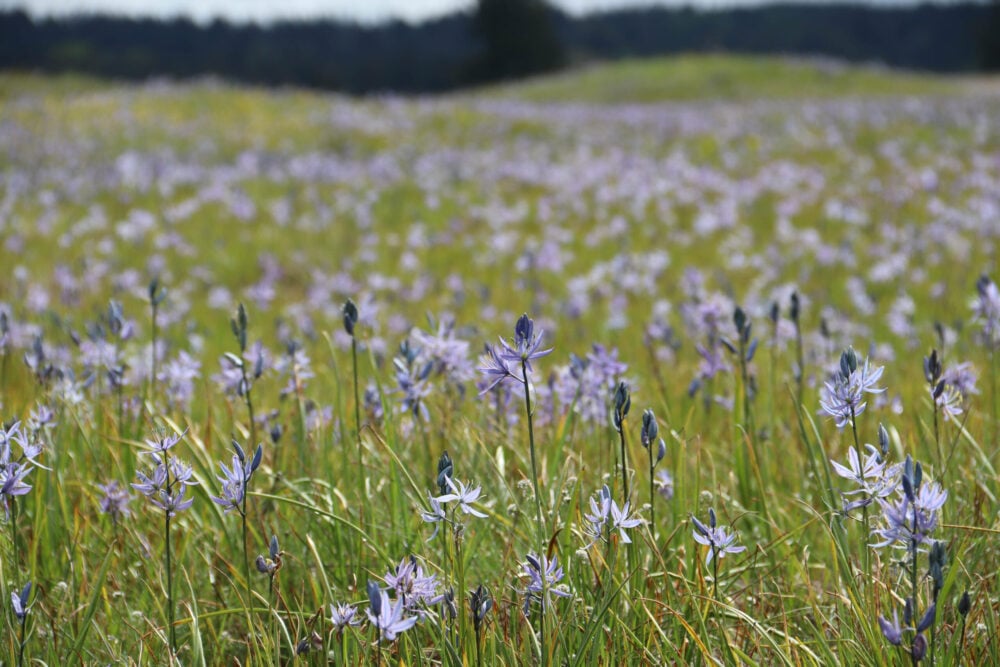

Contributor
- Topics: Archive, Inspired Gardens and Design
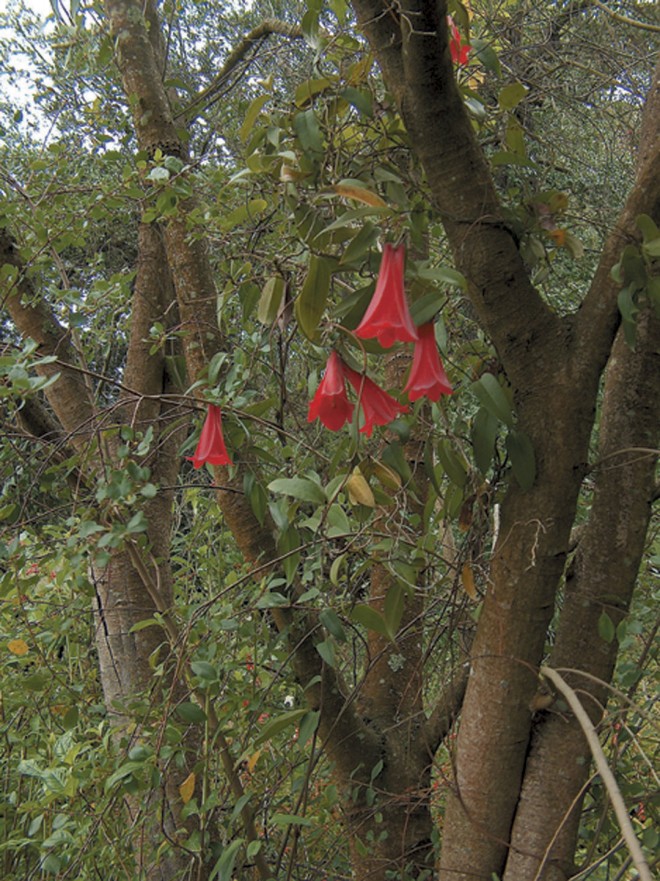
[sidebar]. . . we began our collecting under the falls of the Rio Pilmaiquen. We gave attention, first, to el copihue but soon found that all the plants in sight were still in bud. This was a disappointment, but a glance at the rest of what was growing in the humid chasm was encouraging.
The heavy mists floating across the downpouring water and over the pools that it formed were continually blown downstream, as well as up the steep chasm walls. In this gentle bath, ferns, mosses, and other lowly plants luxuriated. . .
T Harper Goodspeed, Plant Hunters in the Andes, 1961[/sidebar]

The University of California Botanical Garden has a long history of cultivating Chilean bellflowers (Lapageria rosea). Known to Western science since the early part of the nineteenth century, the name Lapageria is derived from the maiden name (Lapagerie) of Napo-leon’s Empress Josephine. Revered as the national flower of Chile, the pendulous, waxy flowers possess a distinctive, leathery substance. The three-or four-inch-long, hummingbird-pollinated flowers are a bright crimson in the wild form. Many beautiful cultivars have extended the color range and floral structure of this striking plant. Native to the coastal mountains of Chile and to the lower elevations of the Andes, in the southern third of the country where rainfall is relatively reliable throughout the year, it is found in damp forests climbing on the lower branches of the native trees and shrubs. This vining lily relative is now variably assigned to the families Philesiaceae or Smilacaceae, depending upon the authority. Leathery, dark green leaves adorn the vines, which can exceed fifteen feet long in cultivation and may be much larger in the wild.
Lapagerias require warm, temperate conditions, and can be grown indoors as a conservatory plant in areas that freeze regularly. However, they will tolerate some freezing, and, indeed, Bay Area plants are reported to have rebounded well from the big freeze of 1972. Given ample summer water and protection from strong sun, this plant can put on a spectacular show of pendulous flowers, reaching a peak from August through December. Coastal California and, in particular, the San Francisco Bay Area, provides probably the best climatic conditions for growing lapagerias in the United States. The moist, coastal influence and moderate temperatures allow gardeners to most nearly approximate the growing conditions of coastal Chile. Lapagerias prefer an acidic and highly organic soil that does not compact as it breaks down. Quite amenable to pot culture, these plants require good drainage, whether in a pot or in the ground. Lapagerias have been grown in Europe since at least the middle of the nineteenth century, indoors in cool greenhouses and outdoors in hospitable microclimates in the British Isles.

Direct from Chile
Lapagerias first appear to have entered the UC Botanical Garden’s collection through the efforts of T Harper Goodspeed, a professor of botany who, as curator or director, was deeply involved in the development of the Garden from 1919 to 1957. Goodspeed made six collecting expeditions to the Andes of South America; a seventh was launched under Dr Herbert Baker’s directorship. While his primary focus was on members of the genus Nicotiana, he and expedition members collected a range of Andean material including many cacti and succulents still present in the Garden’s New World Desert Area and Arid House. A wild accession of Lapageria rosea, collected near Trumao, Chile, and dating to Goodspeed’s 1935-1936 expedition, continues to thrive in the South American Area of the Garden.
Subsequent additions of lapageria to the collection were numerous, and nearly all were cultivars of horticultural origin received directly from Chilean sources. Goodspeed, and his colleague, Garden botanist Paul Hutchison, established a lasting relationship with the nursery at El Vergel Farm, a Methodist mission and agricultural school in Angol, Chile. Lapageria cultivation at El Vergel appears to have been conducted by director Dr Dillman Bullock and horticulturist Elbert Reed. Bullock’s name appears in the accession records of the Garden as a source of Lapageria plants and seed; he is also cited in Goodspeed’s fascinating account of his collecting expeditions, Plant Hunters in the Andes, published by UC Press in 1961.

Hutchison accompanied Goodspeed on his fifth expedition to Chile in 1951 and 1952. Garden records indicate that Hutchison obtained a large number of lapageria cultivars from El Vergel during this expedition. In his book, Goodspeed describes bringing plants back from Chile as expedition members returned to San Francisco on a Grace Line freighter. Plants were grown in soilfilled tubs on the ship’s deck, where they were given constant attention. Upon arrival, soil was washed from their roots for agricultural inspection, and the plants were rushed to Berkeley to be properly repotted. He planted them out in the Garden in both the South American Area and in the Asian Area. They particularly prospered in the latter site due to its moist and humid growing conditions under a redwood canopy. Several of these cultivars, including ‘Collinge’ (syn. ‘Dr Bullock’) and ‘Ligtromu’ (syn. ‘White Cloud’) still grow in the Garden. Throughout the 1960s, Hutchison obtained more plants from El Vergel by mail.
Hutchison also grew lapagerias from seed sent to him from Dr Bullock. He selected a seedling of special merit grown from seed obtained by Bullock from a plant of the cultivar ‘Ligtromu’ at El Vergel. Hutchison named it ‘Mission Lace’ in 1955; it is probably the first cultivar of L. rosea named in California. It still grows in the Garden and is available in the nursery trade.

Dispersing a Garden Jewel
Over the years, the Garden developed a volunteer corps, which at some point began propagating plants from the collection to be sold in support of the Garden. Lapagerias have been a key part of that volunteer propagation program for many years. In 1990, Garden volunteer Sarah Wikander and others began propagating the wild-collected stock as well as the named cultivars and selling them at plant sales. She obtained additional cultivars from local plant collectors, and interacted extensively with Alek Koomanoff, who, at the time, ran the nursery at Strybing Arboretum and Botanical Gardens (now San Francisco Botanical Garden at Strybing Arboretum). Garden staff member Martin Grantham also supported her efforts and assisted with propagation. Sarah brought back more plants from El Vergel when she visited there in 1992. She also began a breeding program, making crosses and recording the color distribution of her seedlings. Her work resulted in the widespread distribution of lapagerias to Bay Area gardeners throughout the 1990s, sparking and encouraging interest in this gardenworthy plant.
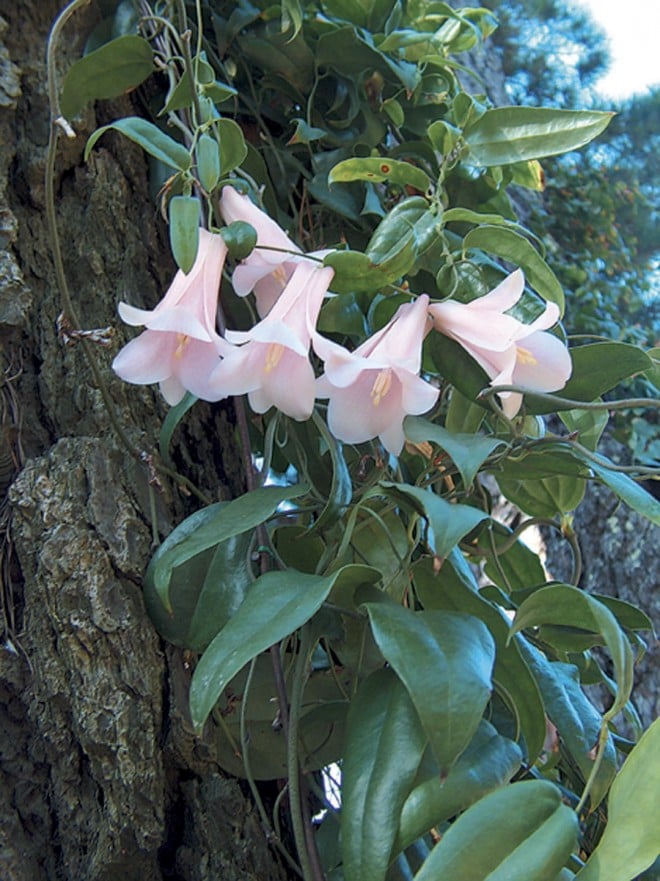
Garden volunteer Carlos Rendon succeeded Sarah in working with the lapagerias in 2001. He began another propagation program on a larger scale, producing plants from both cuttings and from seeds produced through hand-pollination of the flowers. He set up a catalog system for tracking seedlings that included information on parentage, general vigor, and floral characteristics. It takes three to five years for lapagerias to flower from seed, so this effort, along with Sarah’s previous work, represents a major commitment to the horticultural development of this striking plant. We hope that Carlos’s database will assist in defining more effective methodologies for lapageria culture and propagation, and provide specific information on the outcomes of hybridization. Carlos also made a commitment to search for propagation material of cultivars not already in the Garden’s possession. He focused particular energy on obtaining Chilean cultivars, including many that had been lost from the Garden’s collection over the years. A number of selections were obtained in 2004 through generous donations from Marin County collector Alejandro Montenegro, who was born in Chile.
Currently, the Garden has approximately two dozen named and unnamed Lapageria cultivars in propagation, making the collection one of the most comprehensive in North America. These include Chilean, British, and American cultivars, though by far the largest number derive from Chilean sources, particularly El Vergel. The flowers of wild-type lapagerias are a deep, rosy red, generally speckled with spots of paler red or even white. White-flowered plants are reported from the wild, and many in Chile have long sought out additional color variants. Cultivars fall into four main color groups: reds (eg ‘Caupolican’, ‘Beatrix Anderson’), whites (eg ‘Ligtromu’, ‘Toqui’), pinks (eg ‘Colibri’, ‘Ongol’), and picotee or bicolored (eg ‘Collinge’, ‘Relmutral’). Other variations include spotted cultivars, such as the red ‘Mission Lace’, and a double or semidouble red called ‘Quelipichum’. Known in Chile by the common name of copihue, most of the cultivars arising from El Vergel have names derived from the language of the native Chilean Mapuche people. Spanish and English names, often translations, have been applied for many cultivars; for example ‘Ligtromu’ is also known by the names ‘Nube Blanca’ and ‘White Cloud’.

Lapageria Introductions by the University of California Botanical Garden
‘Myrtle Wolf’s Pink’
Renowned Bay Area plantswoman Myrtle Wolf has been an outstanding supporter of the Garden and its development; she has also supported the work of the California Native Plant Society, the Regional Parks Botanic Garden in Berkeley, and many other horticultural institutions (including Pacific Horticulture). The Garden is pleased to introduce this pale pink selection, named in her honor. It has earned a reputation as a forgiving and easily grown cultivar; it roots well from cuttings, is a strong grower, and a terrific bloomer. The light pink flowers darken to medium pink in cold temperatures, a characteristic shared with other pink and white selections. The long-lasting flower is typically three inches long and nearly two inches wide. Myrtle has grown this plant in her Berkeley hills garden for over three decades. According to Sarah Wikander, Myrtle reported that her plant came originally from Ed Carmen of Carman’s Nursery in Los Gatos, California. Over the years, Myrtle has given yards of cuttings from her plant to the Garden for propagation. It has become a favorite among the volunteer propagators.
‘Esquisita’
Roughly translated as ‘Blush’, this plant is among the best cultivars from the personal collection of Alejandro Montenegro. Named by Carlos Rendon, its pale pinkish blush tone varies in intensity as the temperature changes, lightening to white in warmer weather. A good bloomer, ‘Esquisita’ has some of the largest flowers and thickest petals of the blush group, with flowers typically exceeding three inches long and two inches wide. It is a reliably strong grower.
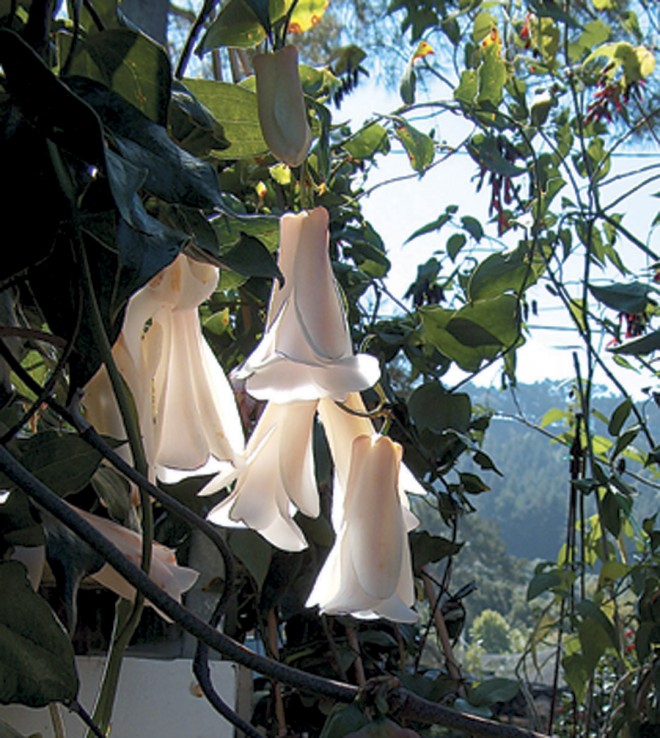
A Lapageria Resource Guide
For more information on the history, cultivation, and propagation of lapagerias visit the excellent website managed by the Napa-based lapageria enthusiast Noel Gieleghem (www.lapageria.com). Included is Elbert Reed’s article on Lapageria rosea and the history of El Vergel, from the July 1964 issue of the Journal of the California Horticultural Society (a predecessor of Pacific Horticulture).
An excellent range of cultivars is available from the University of California Botanical Garden; information on lapagerias and their availability can be found on the Garden’s website (www.botanicalgarden.berkeley.edu). The Garden’s spring plant sale, at which many lapagerias will be available, is Saturday, April 29, 2006. The best cultivars are likely to be snapped up at the members’ preview on Friday, April 28.
Plant sales at the San Francisco Botanical Garden are another excellent source of lapagerias. (www.sfbotanicalgarden.org)
Share:
Social Media
Garden Futurist Podcast
Most Popular
Videos
Topics
Related Posts
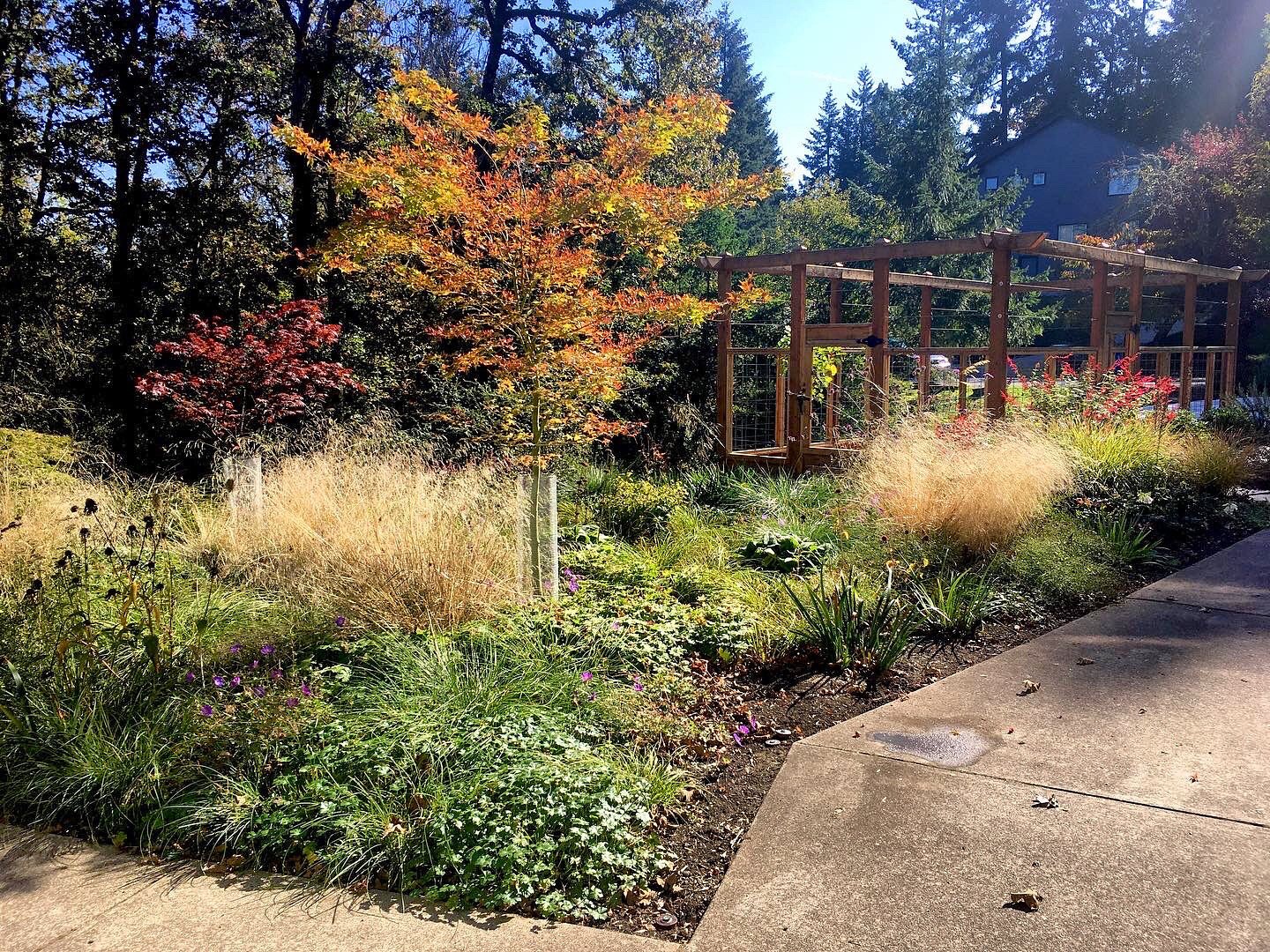
Low Maintenance Gardens – Better for Pollinators and People
Autumn 2022 “I come out every day. It’s therapy, my meditation.” Janet’s young garden transformed from overgrown, invasive plants to mostly natives. The dailiness of
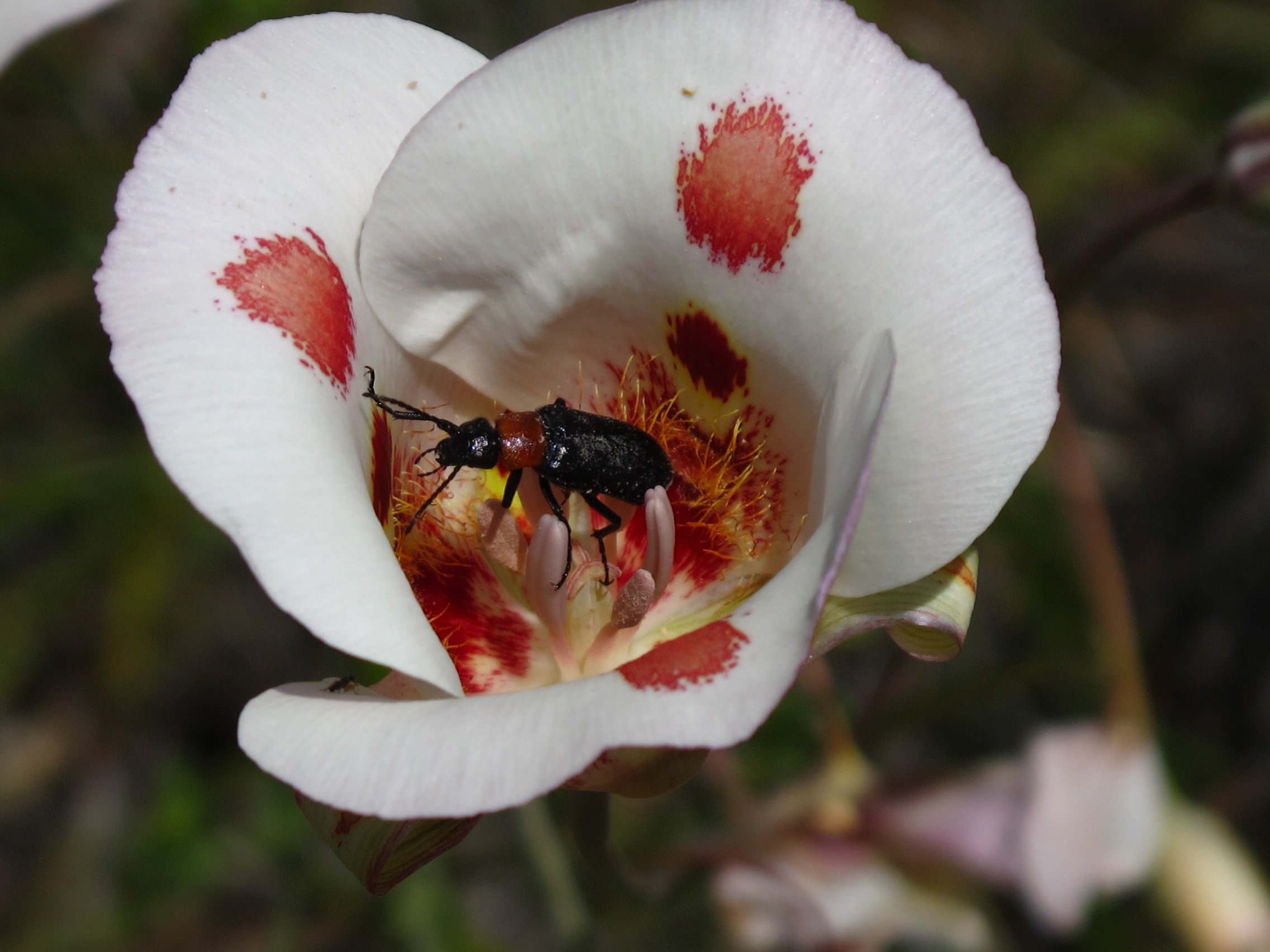
Calochortophilia: A Californian’s Love Affair with a Genus
Summer 2022 I can chart the progression of my life by Calochortus. For the last two decades, at least. As a teenage girl growing up
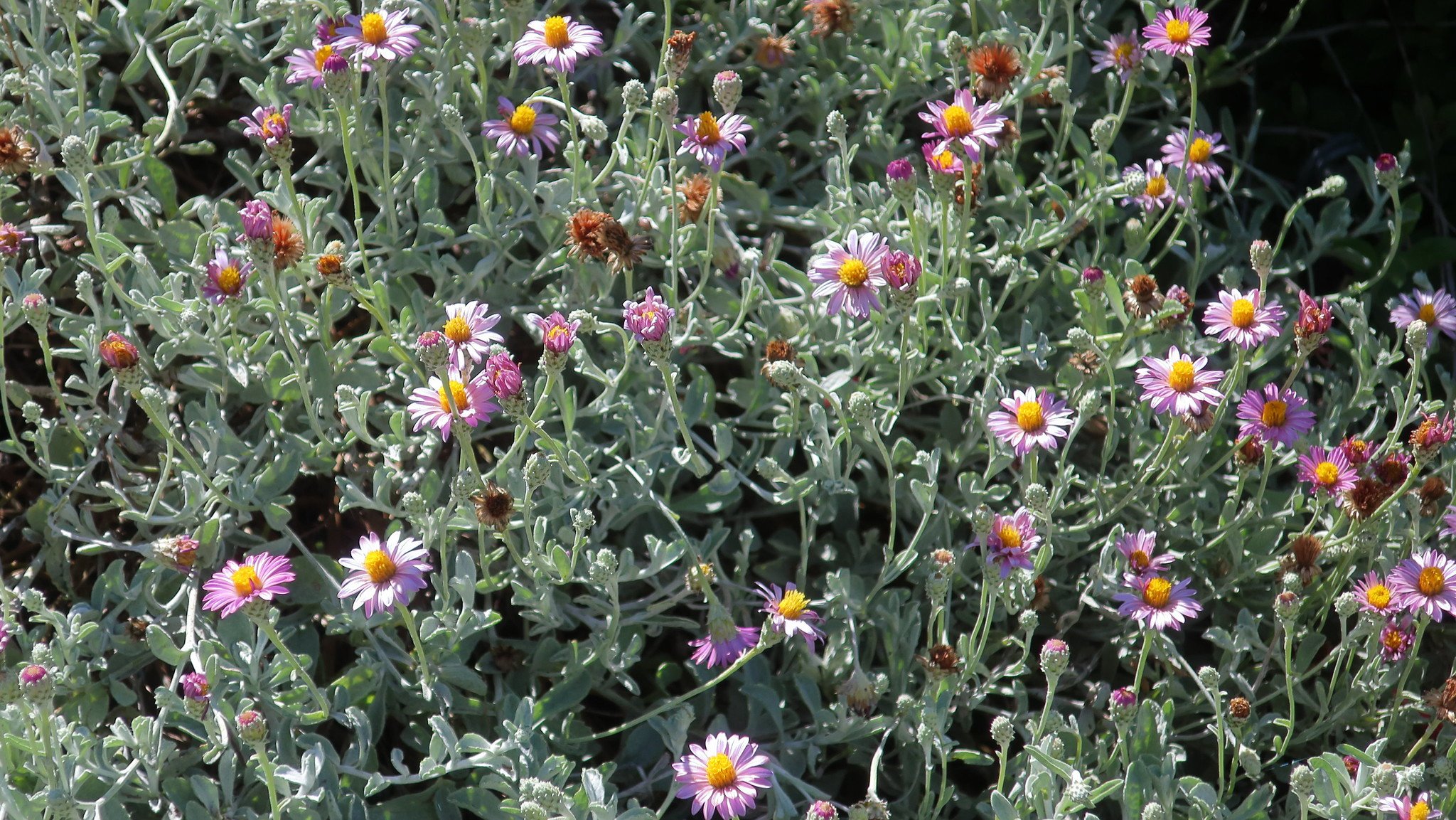
Pacific Plant People: Carol Bornstein
Spring 2022 Public gardens play a key role in demonstrating naturalistic planting design, selecting native and adapted plants for habitat, and testing techniques for reducing
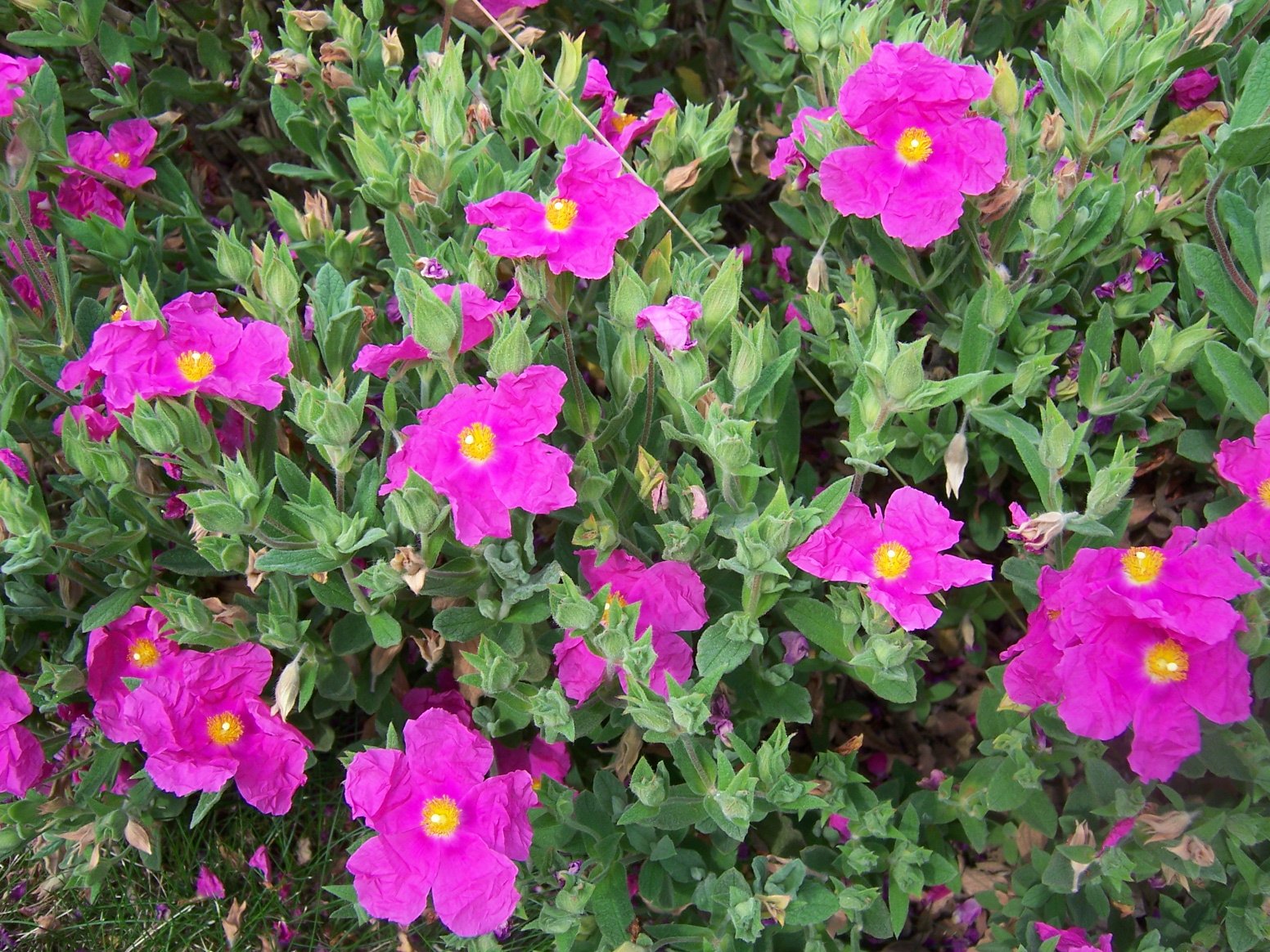
Add Year-Round Interest and Winter Blooms for Pollinators
Spring 2022 This article was created from an Interview by Merrill Jensen with Neil Bell in the Summer of 2021 for our Pacific Plant People




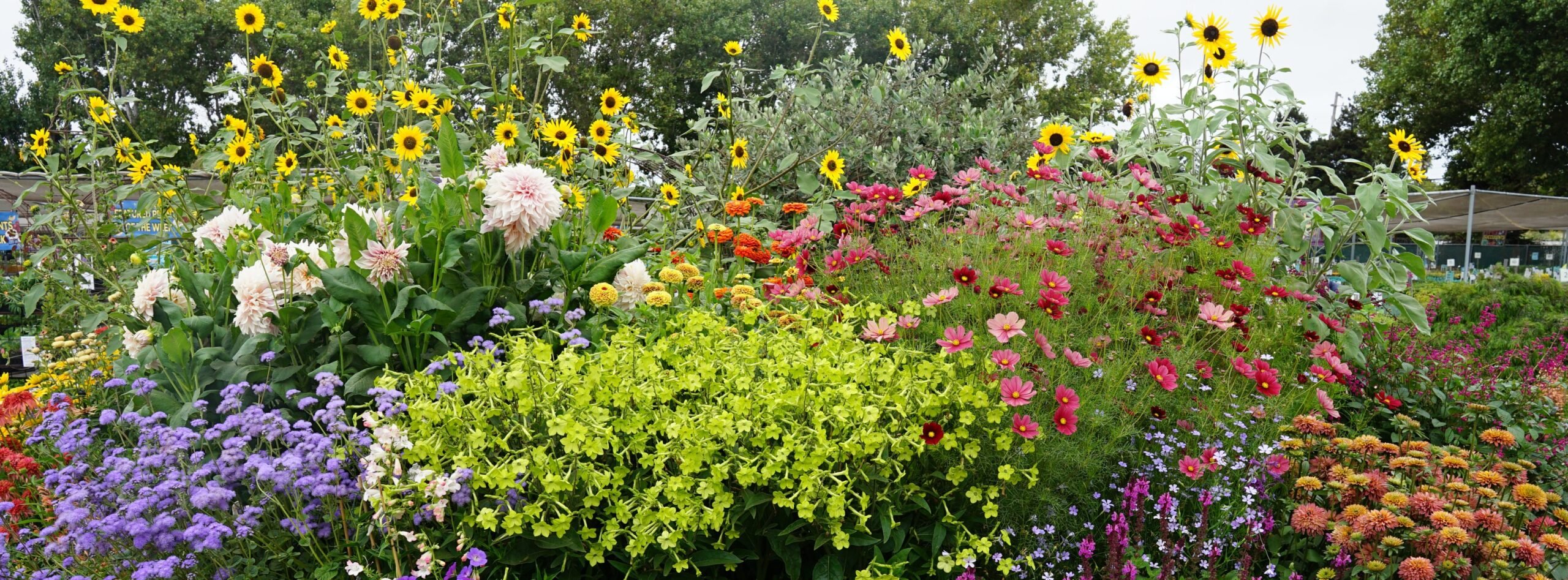




Responses